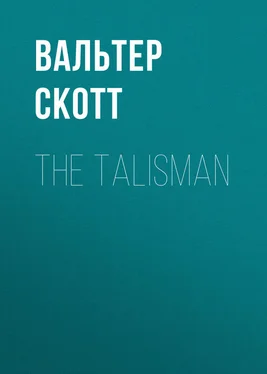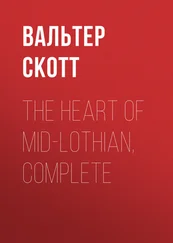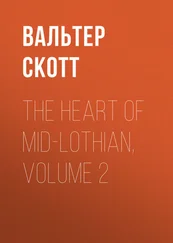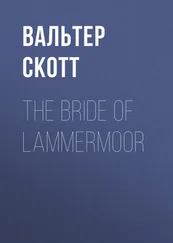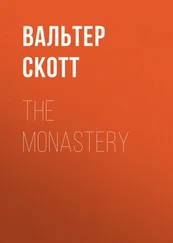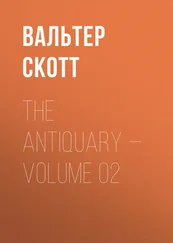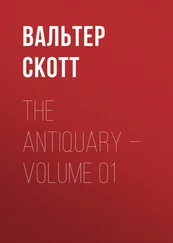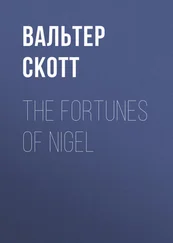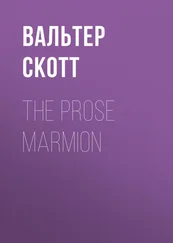Вальтер Скотт - The Talisman
Здесь есть возможность читать онлайн «Вальтер Скотт - The Talisman» — ознакомительный отрывок электронной книги совершенно бесплатно, а после прочтения отрывка купить полную версию. В некоторых случаях можно слушать аудио, скачать через торрент в формате fb2 и присутствует краткое содержание. Жанр: foreign_antique, foreign_prose, на английском языке. Описание произведения, (предисловие) а так же отзывы посетителей доступны на портале библиотеки ЛибКат.
- Название:The Talisman
- Автор:
- Жанр:
- Год:неизвестен
- ISBN:нет данных
- Рейтинг книги:3 / 5. Голосов: 1
-
Избранное:Добавить в избранное
- Отзывы:
-
Ваша оценка:
- 60
- 1
- 2
- 3
- 4
- 5
The Talisman: краткое содержание, описание и аннотация
Предлагаем к чтению аннотацию, описание, краткое содержание или предисловие (зависит от того, что написал сам автор книги «The Talisman»). Если вы не нашли необходимую информацию о книге — напишите в комментариях, мы постараемся отыскать её.
The Talisman — читать онлайн ознакомительный отрывок
Ниже представлен текст книги, разбитый по страницам. Система сохранения места последней прочитанной страницы, позволяет с удобством читать онлайн бесплатно книгу «The Talisman», без необходимости каждый раз заново искать на чём Вы остановились. Поставьте закладку, и сможете в любой момент перейти на страницу, на которой закончили чтение.
Интервал:
Закладка:
The Saracen came on at the speedy gallop of an Arab horseman, managing his steed more by his limbs and the inflection of his body than by any use of the reins, which hung loose in his left hand; so that he was enabled to wield the light, round buckler of the skin of the rhinoceros, ornamented with silver loops, which he wore on his arm, swinging it as if he meant to oppose its slender circle to the formidable thrust of the Western lance. His own long spear was not couched or levelled like that of his antagonist, but grasped by the middle with his right hand, and brandished at arm’s-length above his head. As the cavalier approached his enemy at full career, he seemed to expect that the Knight of the Leopard should put his horse to the gallop to encounter him. But the Christian knight, well acquainted with the customs of Eastern warriors, did not mean to exhaust his good horse by any unnecessary exertion; and, on the contrary, made a dead halt, confident that if the enemy advanced to the actual shock, his own weight, and that of his powerful charger, would give him sufficient advantage, without the additional momentum of rapid motion. Equally sensible and apprehensive of such a probable result, the Saracen cavalier, when he had approached towards the Christian within twice the length of his lance, wheeled his steed to the left with inimitable dexterity, and rode twice around his antagonist, who, turning without quitting his ground, and presenting his front constantly to his enemy, frustrated his attempts to attack him on an unguarded point; so that the Saracen, wheeling his horse, was fain to retreat to the distance of a hundred yards. A second time, like a hawk attacking a heron, the heathen renewed the charge, and a second time was fain to retreat without coming to a close struggle. A third time he approached in the same manner, when the Christian knight, desirous to terminate this illusory warfare, in which he might at length have been worn out by the activity of his foeman, suddenly seized the mace which hung at his saddle-bow, and, with a strong hand and unerring aim, hurled it against the head of the Emir, for such and not less his enemy appeared. The Saracen was just aware of the formidable missile in time to interpose his light buckler betwixt the mace and his head; but the violence of the blow forced the buckler down on his turban, and though that defence also contributed to deaden its violence, the Saracen was beaten from his horse. Ere the Christian could avail himself of this mishap, his nimble foeman sprung from the ground, and, calling on his steed, which instantly returned to his side, he leaped into his seat without touching the stirrup, and regained all the advantage of which the Knight of the Leopard hoped to deprive him. But the latter had in the meanwhile recovered his mace, and the Eastern cavalier, who remembered the strength and dexterity with which his antagonist had aimed it, seemed to keep cautiously out of reach of that weapon of which he had so lately felt the force, while he showed his purpose of waging a distant warfare with missile weapons of his own. Planting his long spear in the sand at a distance from the scene of combat, he strung, with great address, a short bow, which he carried at his back; and putting his horse to the gallop, once more described two or three circles of a wider extent than formerly, in the course of which he discharged six arrows at the Christian with such unerring skill that the goodness of his harness alone saved him from being wounded in as many places. The seventh shaft apparently found a less perfect part of the armour, and the Christian dropped heavily from his horse. But what was the surprise of the Saracen, when, dismounting to examine the condition of his prostrate enemy, he found himself suddenly within the grasp of the European, who had had recourse to this artifice to bring his enemy within his reach! Even in this deadly grapple the Saracen was saved by his agility and presence of mind. He unloosed the sword-belt, in which the Knight of the Leopard had fixed his hold, and, thus eluding his fatal grasp, mounted his horse, which seemed to watch his motions with the intelligence of a human being, and again rode off. But in the last encounter the Saracen had lost his sword and his quiver of arrows, both of which were attached to the girdle which he was obliged to abandon. He had also lost his turban in the struggle.
These disadvantages seemed to incline the Moslem to a truce. He approached the Christian with his right hand extended, but no longer in a menacing attitude.
“There is truce betwixt our nations,” he said, in the lingua franca commonly used for the purpose of communication with the Crusaders; “wherefore should there be war betwixt thee and me? Let there be peace betwixt us.”
“I am well contented,” answered he of the Couchant Leopard; “but what security dost thou offer that thou wilt observe the truce?”
“The word of a follower of the Prophet was never broken,” answered the Emir. “It is thou, brave Nazarene, from whom I should demand security, did I not know that treason seldom dwells with courage.”
The Crusader felt that the confidence of the Moslem made him ashamed of his own doubts.
“By the cross of my sword,” he said, laying his hand on the weapon as he spoke, “I will be true companion to thee, Saracen, while our fortune wills that we remain in company together.”
“By Mohammed, Prophet of God, and by Allah, God of the Prophet,” replied his late foeman, “there is not treachery in my heart towards thee. And now wend we to yonder fountain, for the hour of rest is at hand, and the stream had hardly touched my lip when I was called to battle by thy approach.”
The Knight of the Couchant Leopard yielded a ready and courteous assent; and the late foes, without an angry look or gesture of doubt, rode side by side to the little cluster of palm-trees.
CHAPTER II
Times of danger have always, and in a peculiar degree, their seasons of good-will and security; and this was particularly so in the ancient feudal ages, in which, as the manners of the period had assigned war to be the chief and most worthy occupation of mankind, the intervals of peace, or rather of truce, were highly relished by those warriors to whom they were seldom granted, and endeared by the very circumstances which rendered them transitory. It is not worth while preserving any permanent enmity against a foe whom a champion has fought with to-day, and may again stand in bloody opposition to on the next morning. The time and situation afforded so much room for the ebullition of violent passions, that men, unless when peculiarly opposed to each other, or provoked by the recollection of private and individual wrongs, cheerfully enjoyed in each other’s society the brief intervals of pacific intercourse which a warlike life admitted.
The distinction of religions, nay, the fanatical zeal which animated the followers of the Cross and of the Crescent against each other, was much softened by a feeling so natural to generous combatants, and especially cherished by the spirit of chivalry. This last strong impulse had extended itself gradually from the Christians to their mortal enemies the Saracens, both of Spain and of Palestine. The latter were, indeed, no longer the fanatical savages who had burst from the centre of Arabian deserts, with the sabre in one hand and the Koran in the other, to inflict death or the faith of Mohammed, or, at the best, slavery and tribute, upon all who dared to oppose the belief of the prophet of Mecca. These alternatives indeed had been offered to the unwarlike Greeks and Syrians; but in contending with the Western Christians, animated by a zeal as fiery as their own, and possessed of as unconquerable courage, address, and success in arms, the Saracens gradually caught a part of their manners, and especially of those chivalrous observances which were so well calculated to charm the minds of a proud and conquering people. They had their tournaments and games of chivalry; they had even their knights, or some rank analogous; and above all, the Saracens observed their plighted faith with an accuracy which might sometimes put to shame those who owned a better religion. Their truces, whether national or betwixt individuals, were faithfully observed; and thus it was that war, in itself perhaps the greatest of evils, yet gave occasion for display of good faith, generosity, clemency, and even kindly affections, which less frequently occur in more tranquil periods, where the passions of men, experiencing wrongs or entertaining quarrels which cannot be brought to instant decision, are apt to smoulder for a length of time in the bosoms of those who are so unhappy as to be their prey.
Читать дальшеИнтервал:
Закладка:
Похожие книги на «The Talisman»
Представляем Вашему вниманию похожие книги на «The Talisman» списком для выбора. Мы отобрали схожую по названию и смыслу литературу в надежде предоставить читателям больше вариантов отыскать новые, интересные, ещё непрочитанные произведения.
Обсуждение, отзывы о книге «The Talisman» и просто собственные мнения читателей. Оставьте ваши комментарии, напишите, что Вы думаете о произведении, его смысле или главных героях. Укажите что конкретно понравилось, а что нет, и почему Вы так считаете.
